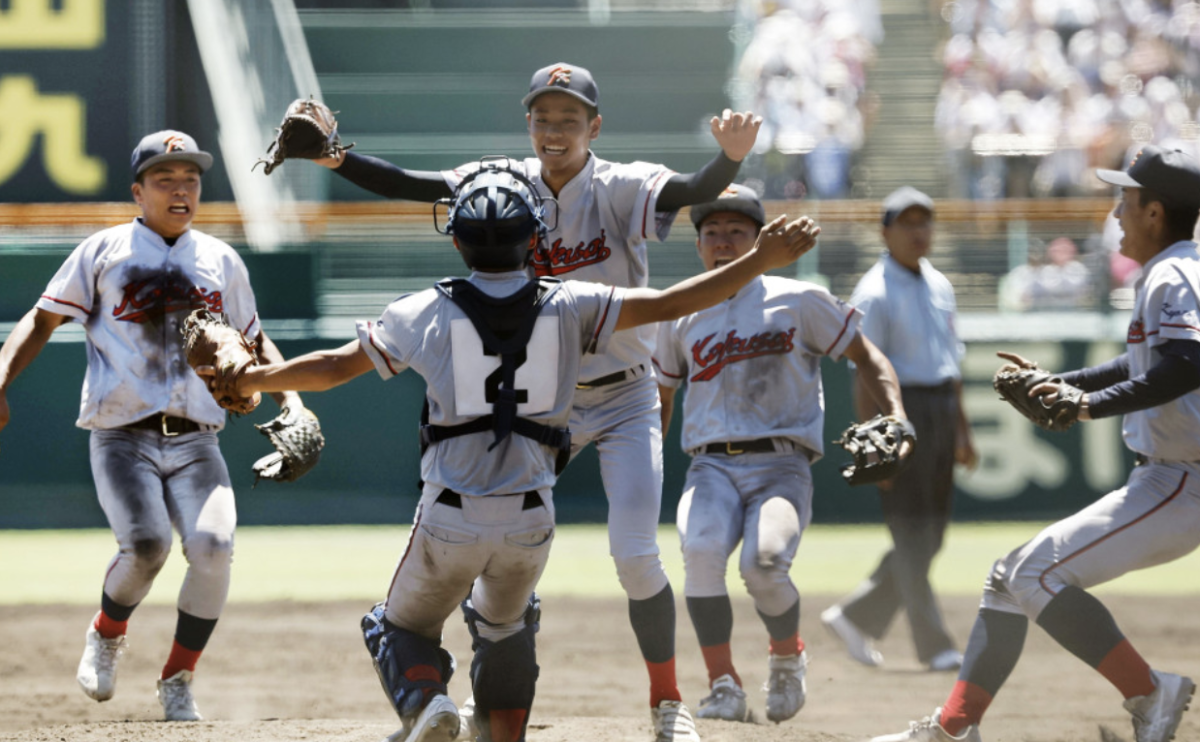Cheers from the stadium exploded as the first Korean-Japanese team reigned victorious by clinching a narrow win of 2-1. On Aug. 23, Kyoto International made history in the core of Hanshin Koshien Stadium in Nishinomiya, Osaka.
The Summer Koshien is an annual nationwide high school baseball tournament lasting 17 days in total. With a shocking number of 3,715 schools trying out for the tournament, only 49 were qualified. Its prestigious standards and rigorous preliminaries challenged Kyoto International School all the way to the finals.
In the finale of the Koshien, the game was scoreless until Kyoto International scored two runs in the 10th inning during the tiebreaker. But their 17-year-old left-handed ace, Ikki Nishimura, struck out the final batter with two outs and bases loaded.
Kyoto International High School, located in Higashiyama, was first established in 1947. However, in the 1990s, due to the financial turbulence at the time, the school transitioned to a Japanese institution supported by the South Korean Ministry of Foreign Affairs and the Korean Resident Union of Japan. With the approval in 2003, international and Japanese students were enrolled in Kyoto, making it one of the few Korean-Japanese schools present. Despite the school being founded in the mid-1900s, the official baseball team was only founded in 1999, with most male students specifically enrolling for the baseball team. Although this year’s baseball team prevailed, their historical win-loss record does not speak to their recent success. In 1999, for example, the team lost to an astonishing 0-34 defeat in their first game against a local Japanese school. The evolution from common underdogs to prevailing champions demonstrated extreme vigor and dignity to the Kyoto International School.
“From what I know of baseball, it’s like every other sport industrious and disciplined,” James Kowalski, a baseball enthusiast, said. “It takes multiple practices, sometimes lasting more than 3 hours for a team, to even win a match. The fact that Kyoto did what many couldn’t is a symbolic award of satisfaction to the school.”
Although some agree that the genuine intentions of the match represent Kyoto’s unwavering stoicism, some argue that Kyoto’s achievement demonstrates something greater.
“I think the game was an amazing feat particularly because the environment the team worked in was neglected,” Wongyeom Yang (12), a Summer Koshien fan, said. “But it also holds great significance—almost symbolic—especially considering the history between Japan and Korea.”


